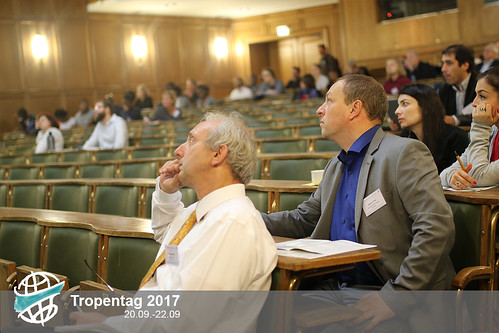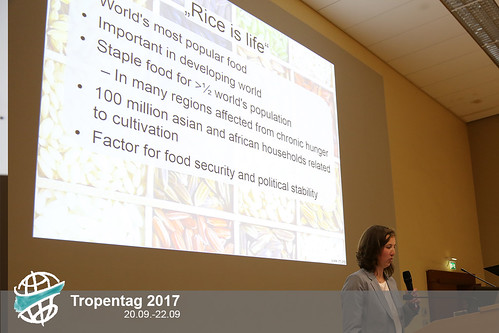mustamin.fadli's blog
Rethinking the Way We Farm
Fri, 09/22/2017 - 10:04 — mustamin.fadliKeynote speaker Bina Agarwal, Professor of Development Economics and Environment at the Global Development Institute, University of Manchester, elaborates on the three areas, or pillars, any pathway towards a future agriculture needs to address. In the first video, Professor Agarwal provides an overview of her three pillars, technology, ecology, and institutions.
In the second video, she describes in more detail group farming as a promising institutional innovation.
ICRAF on Improving Agroforestry Farming Systems
Fri, 09/22/2017 - 10:01 — mustamin.fadliHow to Engage Young People in Agriculture?
Fri, 09/22/2017 - 09:46 — mustamin.fadliYoung Scientists Work to Make a Healthier Soil
Thu, 09/21/2017 - 14:38 — mustamin.fadliAt the first oral presentation on soil and soil fertility today there were five young scientist presenting their work. I found two very interesting. Steffen Werner from the University of Bochum tried to answer if urban agriculture can contribute to food security by reducing nutrient losses. His two years work in Ghana used biochar and water irrigation to reduce nutrient losses. Urban and peri-urban agriculture is characterized by higher input and soil degradation. Excessive use of mineral fertilizer can lead to losses of nutrient through leaching.

However, his results still showed increased nutrient leaching, especially of N, P, Ca, Mg, and Na. He suggested more appropriate irrigation, because that proved effective in lowering leaching .
Irabella Thiemann from the University of Bonn tried to find out if flow paths in maize-paddy rice cropping system can be a hotspot for nutrient cycling. Maize-paddy rice cropping systems consume less water during the dry season. Changing systems from maize to rice led to desiccation cracks in the soil. Her research studied the role of this crack, where anaerobic conditions lead to methane emissions.
Young scientist fights hunger
Wed, 09/20/2017 - 18:57 — mustamin.fadliThe Hans Hartwig Ruthenberg Graduate Award is usually given to promising young scientists working towards improving farming systems and alleviating hunger. This year Ulrike and Sarah were honored.

Ulrike Beukert
How will we meet the rising demand of rice in future owing to the growing population? For a long time, plant breeding has been the popular answer to this question. However in most cases, the yield remains stagnant. The high expense incurred by the current current approach is a huge challenge. Ulrike Beukert, Plant Breeding student from Martin-Luther-University of Halle-Wittenberg has a new approach on rice breeding. Her reserach on “Genome-based identification of heterotic patterns in rice,” used only a small selection of hybrid to predict the entire parent-line. Biostatistic analysis of yield and gene marker data helped her increase the prediction acurracy and improve yield.




